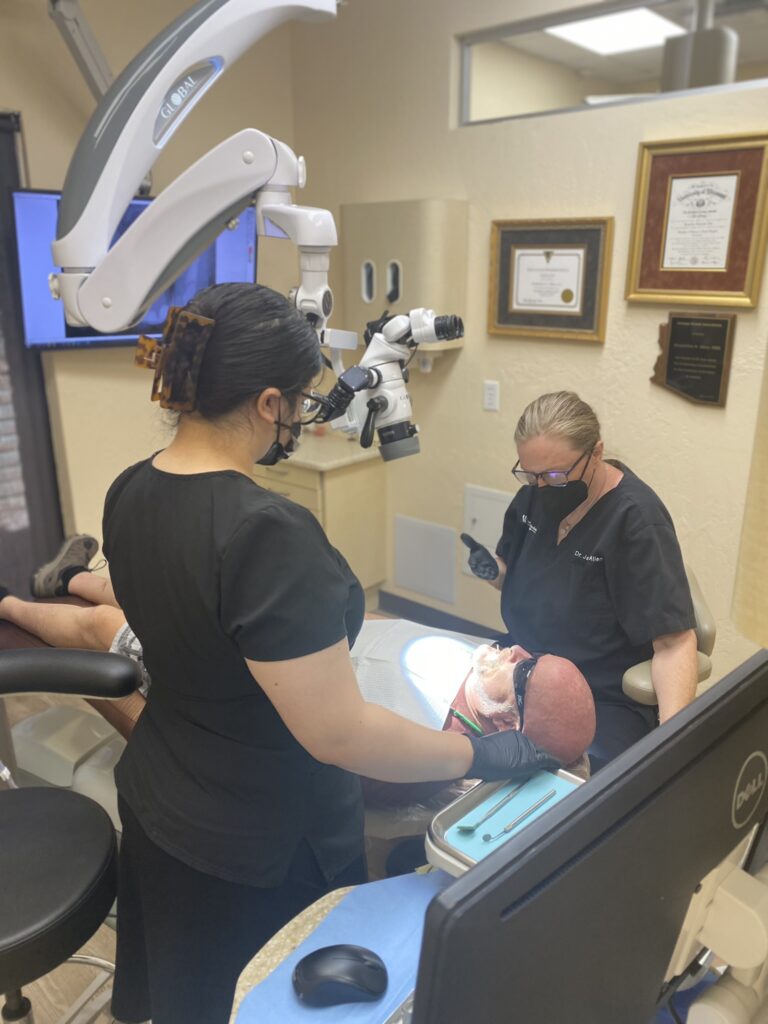 If you have failing or missing teeth, you may be investigating dental implants as a possible solution. While root canals can often save natural teeth, sometimes teeth are beyond saving, and retaining a full mouth of teeth is essential for maintaining your natural bite, as well as your natural smile.
If you have failing or missing teeth, you may be investigating dental implants as a possible solution. While root canals can often save natural teeth, sometimes teeth are beyond saving, and retaining a full mouth of teeth is essential for maintaining your natural bite, as well as your natural smile.
Dental implants can be a great investment for many patients. Their long-term success rate is above 90 percent, and nine out of 10 patients say they are happy with the end result. Getting the most out of your implants begins with preparing for your procedure properly. We’ve assembled a list of key tips to get you started on your road to implant success.
6 Tips To Aid Dental Implant Recovery And Post-Recovery Success
- Learn about how dental implants will change your life. It doesn’t hurt to have a little motivation going into your implant surgery! Implants can give you back your full smile and help you erase issues with chewing and speaking clearly. They can also help combat bone loss in your jaw.
- Be aware of any health conditions that could impact your recovery. The dental professional who performs the dental implant will do a thorough exam beforehand. They will address conditions such as diabetes in terms of implant success, as well as dental issues such as bruxism (teeth grinding). They will also discuss your options for addressing the impact of tobacco use on implant success, since smoking reduces bone density and slows wound healing.
- Understand the dental implant process timeline. Being clear about how long the process of placing your implant will take ensures you can take the right steps to focus on your recovery. Your dentist will let you know if you will receive your implant through a “teeth in one day” (one-step) process, or if you will require multiple steps (and appointments) before your implant is complete. They will also discuss whether you need preliminary procedures before the implant, such as bone augmentation, to make sure the implant integrates properly into your jaw.
- Prepare for your initial appointment properly. Some of the steps taken before your dental implant appointment may seem familiar if you’ve had another type of surgery. You’ll receive instructions on things like when to stop smoking before surgery, when to limit food and liquid intake, and any medications you will need to take ahead of the procedure. Follow your dentist’s directions closely, and ask questions if you have concerns.
- Know what to expect immediately after dental implant surgery. You’ll want to take it easy for the first three days after your implant surgery. Your dentist may send you home with pain relievers and antibiotics – if they do, take them as prescribed. It’s normal to experience some minor bruising and bleeding, and for you to feel pain around the implant site, but contact your dentist if these don’t subside quickly. You’ll need to follow a soft-foods diet until your gums heal.
- Develop a self-care routine to ensure dental implant success. You will need to care for your dental implants like natural teeth. That means brushing twice a day, flossing daily, and visiting your dentist regularly. Checkups allow your dental professional to see how the implant is impacting your other teeth and gums and provide suggestions to help you keep your dental implants for a lifetime.
“The recovery period after dental implant surgery is one of the most critical phases of the process,” says Dr. Jacqueline S. Allen, who practices with the Phoenix Endodontic Group. “Our team can walk patients through each step, so you feel confident before, during, and after the procedure.”
